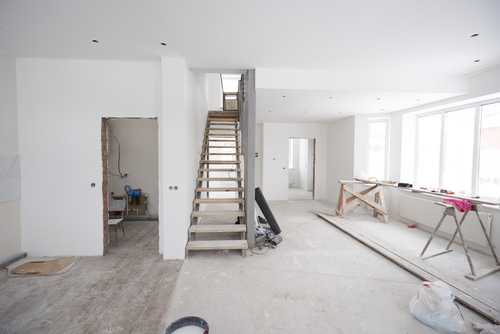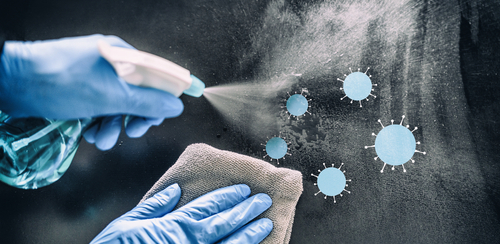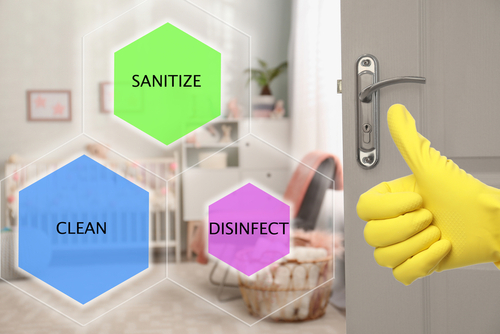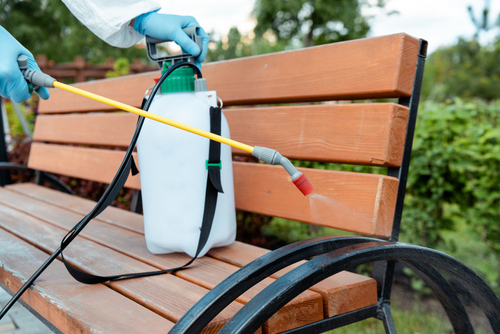
Disinfection for Events: Keeping Gatherings Safe
October 3, 2023
Why Disinfect After Renovations or Construction: Healthy Living Space
October 31, 2023Condominiums and Residential Disinfection Service in Singapore

Condominiums and Residential Disinfection Service in Singapore
Condominiums and Residential Disinfection Service in Singapore. In the bustling urban landscape of Singapore, condominiums and residential spaces stand as pillars of modern living.
As the demand for high-quality living environments continues to rise, so does the emphasis on cleanliness and hygiene.
This comprehensive guide delves into the significance of maintaining impeccable hygiene standards within condominiums and residential spaces in Singapore.
The Significance of Condominium Cleanliness
Upholding Health and Well-being
Cleanliness in condominiums extends beyond mere aesthetics. It plays a pivotal role in safeguarding the health and well-being of residents.
A pristine living environment helps prevent the spread of illnesses and allergies, ensuring residents enjoy a healthy and comfortable lifestyle.
Enhancing Resident Satisfaction
Clean and well-maintained condominiums contribute significantly to resident satisfaction.
Residents are more likely to renew their leases and recommend the property to others when they experience high cleanliness and comfort.
Legal and Safety Implications
Compliance with Regulations
Singapore has stringent regulations governing the hygiene and sanitation standards of residential spaces.
Failure to adhere to these regulations can result in fines and penalties.
Property management companies and condominium associations must ensure full compliance to avoid legal repercussions.
Safety of Residents
Ensuring the safety of residents is paramount. A clean environment reduces the risk of accidents and injuries, such as slips and falls.
Regular maintenance and cleanliness protocols are crucial in preventing accidents within condominiums.
Daily Cleaning Procedures

A Comprehensive Checklist
A well-structured daily cleaning routine is the cornerstone of maintaining condominium cleanliness. Here is a comprehensive checklist for daily cleaning procedures:
- Common Areas
- Sweep and mop hallways, lobbies, and corridors.
- Disinfect high-touch surfaces, such as elevator buttons and doorknobs.
- Empty trash bins regularly.
- Sweep and mop hallways, lobbies, and corridors.
- Individual Units
- Vacuum and mop floors.
- Wipe down countertops and surfaces.
- Clean and disinfect bathrooms and kitchens.
- Vacuum and mop floors.
Maintaining Cleanliness During Service Hours
Condominium management should ensure that cleaning procedures are not disruptive to residents. Cleaning schedules should be coordinated to minimize inconvenience during peak hours.
Cleaning Equipment and Supplies
Choosing the right cleaning equipment and supplies is essential for effective cleaning. Here’s how to make the right selection:
Environmentally Friendly Products
Opt for eco-friendly cleaning agents to reduce environmental impact.
High-Quality Cleaning Equipment
Invest in reliable cleaning machinery for efficient and thorough cleaning.
Staff Training and Responsibilities

Proper Training
Well-trained cleaning staff are indispensable. They should have the knowledge and skills to perform their duties effectively. Training should cover:
- Proper handling of cleaning chemicals.
- Safe operation of cleaning equipment.
- Hygiene and safety protocols.
Clear Roles and Responsibilities
Define roles and responsibilities clearly within your cleaning team. Ensure that each staff member knows their tasks and understands the importance of their role in maintaining condominium cleanliness.
Preventing Cross-Contamination
Risks of Cross-Contamination
Cross-contamination poses a severe health risk within condominiums. It can lead to the spread of diseases and infections. Understanding the risks is crucial for prevention.
Best Practices
Implementing best practices can significantly reduce the risk of cross-contamination:
- Color-coded cleaning tools for different areas.
- Regular replacement of cleaning cloths and sponges.
- Proper disposal of cleaning materials.
Deep Cleaning Procedures
Deep cleaning goes beyond the surface and is essential for maintaining high hygiene standards. Here’s a step-by-step guide to deep-cleaning condominiums:
Bedrooms and Living Areas
- Dusting and wiping all surfaces.
- Shampooing carpets and upholstery.
Kitchens and Bathrooms
- Disinfecting all surfaces.
- Cleaning and descaling appliances.
Maintaining Common Areas

Extending Appliance Lifespan
Regular maintenance of common area appliances is vital. Cleaning and servicing elevators, air conditioning units, and lighting fixtures can extend their lifespan and reduce operational costs.
Avoiding Common Mistakes
Property management should be aware of common mistakes to avoid when maintaining common areas, such as neglecting routine inspections and repairs.
Managing Waste and Disposal
Efficient waste management is essential for maintaining cleanliness and reducing environmental impact. Consider the following waste management strategies:
Recycling Programs
Implement recycling initiatives to minimize waste sent to landfills.
Proper Disposal Protocols
Follow regulations for hazardous waste disposal. Encourage residents to recycle and segregate waste properly.
Pest Control Measures
Identifying Common Pests
Common pests in condominiums include rodents, cockroaches, and bedbugs. Identifying these pests early is crucial for effective pest control.
Prevention and Treatment
Proactive measures such as sealing entry points and regular inspections can prevent infestations. In case of an infestation, prompt treatment is essential to protect residents.
Monitoring and Quality Control
Regular Inspections
Implement regular inspections and audits to ensure cleanliness standards are maintained. Address any issues promptly to prevent deterioration of hygiene levels.
Resident Feedback
Encourage residents to provide feedback on cleanliness and address their concerns promptly. Resident satisfaction is a key indicator of cleanliness success.
Cost-Effective Cleaning Solutions

Managing Cleaning Costs
Property management should explore cost-effective cleaning solutions without compromising quality. Consider:
- Outsourcing Cleaning Services: Outsourcing can be cost-effective and efficient.
- Bulk Purchases: Buy cleaning supplies in bulk to save on costs.
Cost-Benefit Analysis
Conduct a cost-benefit analysis to evaluate the return on investment for cleaning services versus in-house cleaning staff.
Frequently Asked Questions (FAQs)
Q: What are the legal requirements for condominium cleanliness in Singapore?
A: Condominiums in Singapore must comply with the Housing Development Act, which outlines hygiene and sanitation standards for residential properties. Failure to comply can result in legal consequences.
Q: How often should deep cleaning be conducted?
A: Deep cleaning should be conducted at least once every six months to ensure the highest level of hygiene within condominiums.
Q: Can I outsource cleaning services for my condominium?
A: Outsourcing cleaning services to professional cleaning companies is common in Singapore and can be a cost-effective solution.
Q: What are the consequences of failing health inspections for condominiums?
A: Failing health inspections can result in fines, penalties, and reputational damage. It’s crucial to maintain high cleanliness standards to avoid these repercussions.
Q: How do I handle a pest infestation in my condominium?
A: Contact a professional pest control service to assess and address the infestation. Residents should also be informed and take precautions.
Q: Is it necessary to hire professional cleaners for condominiums?
A: While some condominiums may have in-house cleaning staff, many opt to hire professional cleaners for their expertise and efficiency in maintaining high cleanliness standards.
Condominiums and Residential Disinfection Service in Singapore – Conclusion

In conclusion, maintaining impeccable cleanliness within condominiums and residential spaces in Singapore is a legal obligation and fundamental to providing residents with a safe and comfortable living environment.
Property management can ensure that their condominiums shine as beacons of hygiene and well-being by adhering to regulations, implementing robust cleaning protocols, and considering cost-effective solutions.
Let us continue to prioritize cleanliness and elevate the standard of living in Singapore’s condominiums!
Are you seeking professional and reliable disinfection services in Singapore? Contact us today!



